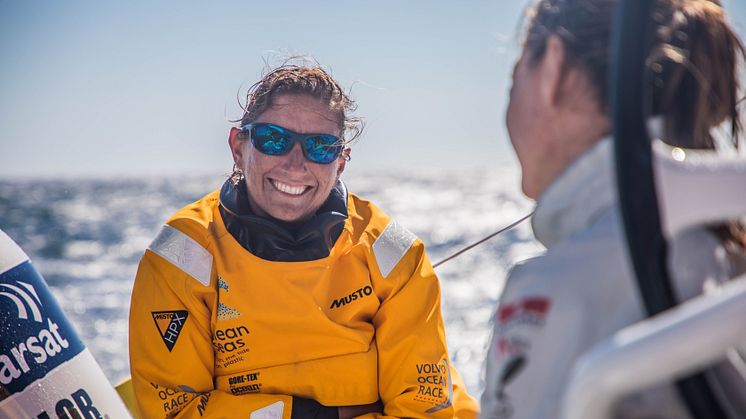
Blog post -
Event organisers need to be bolder when it comes to improving sustainability initiatives
Since the finish of the Volvo Ocean Race 2017/18 (now renamed The Ocean Race), it has been nominated for and won several awards and accolades relating to sustainability. The high standards and innovative approach to event management has been regarded as a beacon and encourages other events to react to the change in public opinion when it comes to sustainability.
Sporting events such as Wimbledon, Formula One Grand Prix, World Cup Football, Cowes Week and Tour de France (to name just a few) attract a huge following and the athletes participating become role models and an inspiration to many. The demographic and audience reached by sporting events is wider and more influential than some of the most creative or expensive advertising campaigns. Sports fans are dedicated, engaged and loyal. The net result is that the power of sport and the voice of an athlete can have a huge impact when they support a cause or highlight an environmental or scientific issue.
Having walked the walk and talked the talk on the sustainability front as skipper of Turn the Tide on Plastic, I am more aware than ever that there is a tipping point in terms of the momentum gathered. For me this was made evident when I finished the Ocean Race and observed governments and companies across the globe finally taking steps towards the reduction of single use plastics. Events in general, but particularly sporting events, are an opportunity to extend the reach of the sustainability message and have a profound impact on the way people consume food and drink away from home.
As members of the spectating public, spending our hard earned cash to attend these events, we are key influencers and in a prime position to demand more from them to make sure our world and ocean environments have a positive future. As sportsmen and women, we need to force a change in our own habits and actions and lead by example. As event organisers, we need to investigate and embrace new technologies and innovations and provide a platform for them to demonstrate how they can make the changes easier for us all to implement.
Event organisers can control who participates and, for example, to only grant concessions to outlets that supply compostable cups and cutlery. If we want to encourage people to use only re-usable bottles, events must ban the sale of plastic bottles and provide water stations so personal bottles can be refilled. If sponsors or suppliers to an event have sustainability agreements in place, reward them with branding on the reusable bottles or the water stations. Recycling is another area that can be developed and much more responsibility needs to be taken in terms of managing event waste in conjunction with local councils.
The good news is that influential event organisers are taking action. To encourage behaviour change during matches, the Premier League are working alongside Sky Ocean Rescue and trialing the use of reusable cups within their football stadiums to replace single-use plastic cups. These cups can be reused up to 200 times and, after use, are taken to a specialist facility off-site to be thoroughly cleaned and returned to the ground ready for the next match. Arsenal were the first to trial the reusable cups at their stadium and West Ham, Chelsea and Fulham are all following suit this season. By introducing this sustainable way of consuming drinks at all their matches, they are helping change attitudes and, before long, these habits will extend beyond the match ground and into home and work places too.
There are so many ways that events generally can support sustainability. I encourage you to be bold and challenge the normal routine to see if you can make improvements and spread the message we all need to act on. We only have one planet and right now it needs looking after if we are to sustain the 7 billion people living on it. So, whether you are a school fete, a village fayre or a world leading sports event, there is always something that can be done and together we can make change happen.
